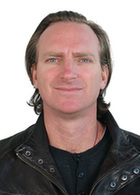China's food and drug authority has issued another warning about overseas drugs sold online, saying that 75 percent of such drugs are counterfeit.
The China Food and Drug Administration said in an online statement on Wednesday that the authenticity of generic anti-cancer drugs sold online cannot have their authenticity and quality guaranteed.
The authority cited an investigation by the drug administration of Shenzhen that said that 75 percent of foreign generic anti-cancer drugs supplied by online agents are fake and ineffective.
Zhi Xiuyi, head of the Lung Cancer Diagnosis and Treatment Center of the Capital Medical University in Beijing, said Chinese cancer patients turn to online agents mainly for cheap generic drugs and foreign new drugs have not yet been approved in China.
"Due to the high cost of developing new drugs and getting patents, many newly developed drugs are very expensive. Yet such drugs are included in the medical insurance systems of the EU and the US," he said.
"Many patients turn to online agents for those drugs because the drugs are too expensive in the domestic market or they are not yet available in the overseas market," he said.
As for generic drugs, most that are sold online are imported from India, he said.
Cancer treatments like Gleevec, which typically cost more than 10,000 yuan ($1,600) a month, are not covered by the medical insurance system, while the cost for the generic treatments is only about 1,000 yuan a month.
Zhi said the drugs sold by online agents are risky as they are administered without drug authorities' supervision. "Patients can't tell the difference between genuine drugs and fake drugs as it requires technical expertise and equipment."
Peng Donghong, an official with the drug administration of Shenzhen, said the online transactions of drug sales have made it difficult to supervise the market.
According to Chinese regulations, online drugstores can sell only nonprescription medicine, and the stores must obtain authorization from drug authorities.
To keep patients from resorting to generic drugs, the authority should speed up the approval of foreign drugs into the Chinese market and include more anti-cancer drugs in the healthcare system, Zhi said.
"There should be a fast track for anti-cancer drugs developed in the US or EU," he said, adding that it now takes several years for the Chinese drug authority to approve any new drug.
Meanwhile, the authority should expand the category of anti-cancer drugs covered by healthcare programs to make the drugs more affordable.
"It is impossible for the government to absorb the entire cost as the drugs are expensive. Thus the cost should be shared by three parties: the government, the patient and the drug maker," he said.
Questions:
1. According to the report, what percentage of drugs sold online are fake?
2. Who is the head of the Lung Cancer Diagnosis and Treatment Center in Beijing?
3. According to Doctors Without Borders, India makes how much of the world’s generic cancer drugs?
Answers:
1. 75%.
2. Zhi Xiuyi.
3. One-fifth.
(中國日報網(wǎng)英語點津 Helen 編輯)

About the broadcaster:

Lance Crayon is a videographer and editor with China Daily. Since living in Beijing he has worked for China Radio International (CRI) and Global Times. Before moving to China he worked in the film industry in Los Angeles as a talent agent and producer. He has a B.A. in English from the University of Texas at Arlington.
